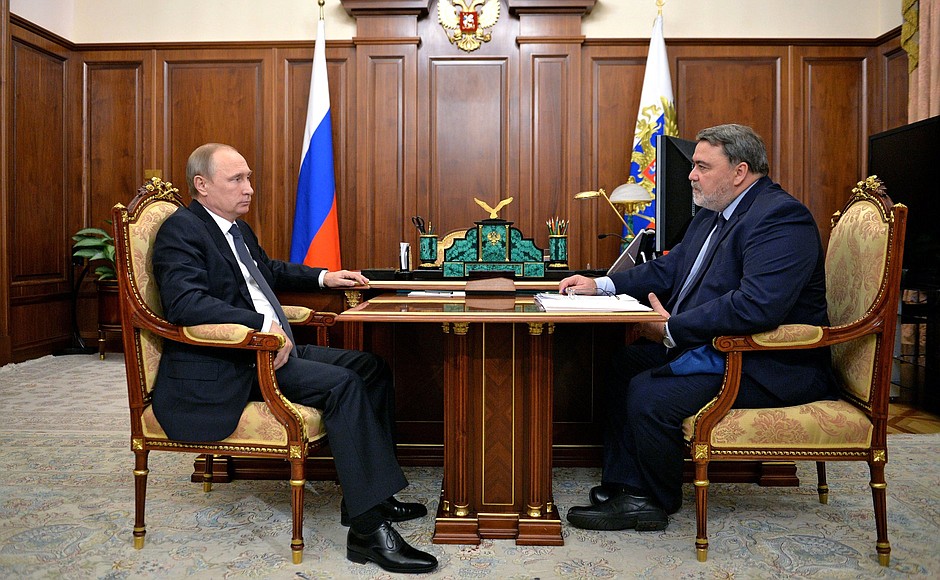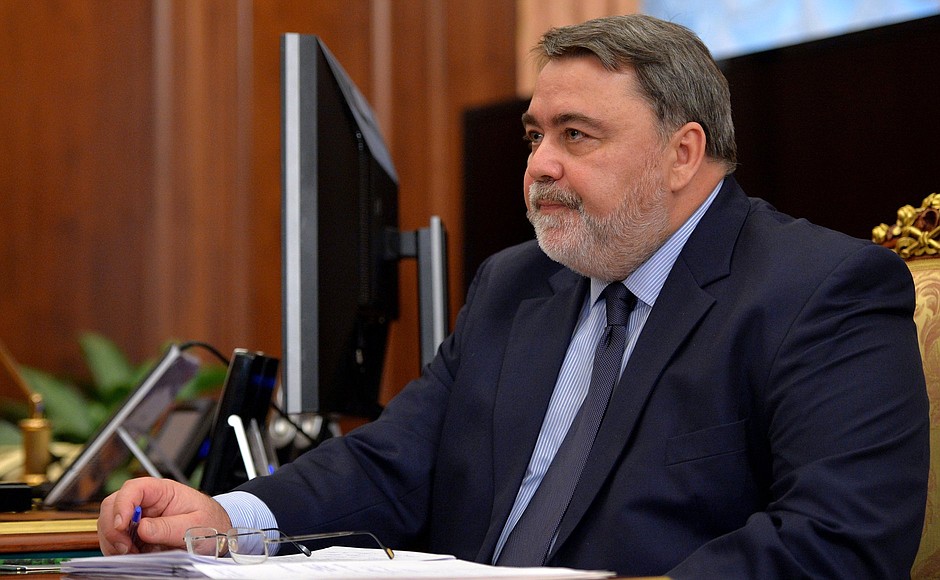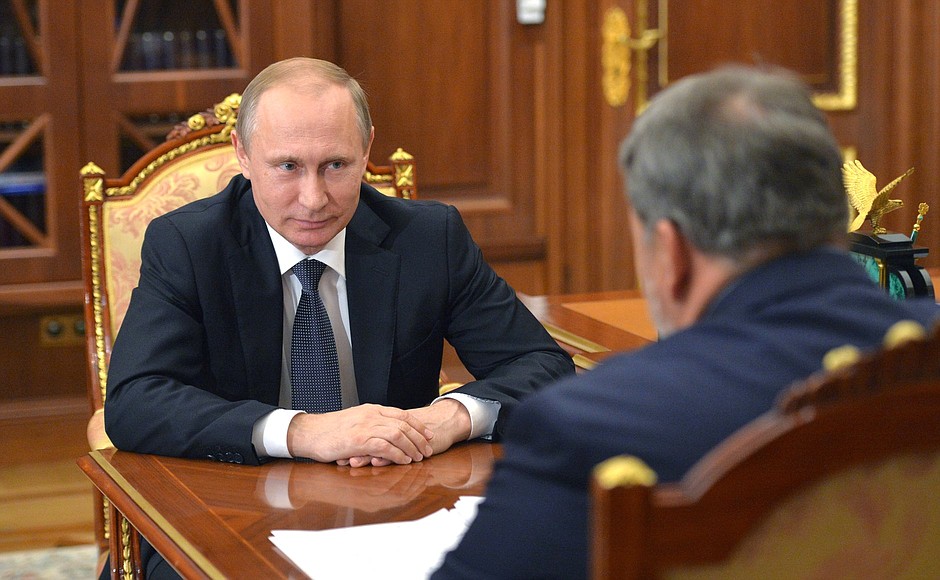President of Russia Vladimir Putin: Mr Artemyev, please update me on the current status in your department following the merger with the Federal Tariff Service. What do you think about the merger? Are there any practical results?
Head of the Federal Anti-Monopoly Service Igor Artemyev: Mr President, thank you for this opportunity to meet with you.
It is too soon to talk about major achievements. We are focusing on keeping to the schedule and adopting tariffs on time. We have been able to accomplish this.
We started analysing the issue of incentivising companies, including natural monopolies. What we got in the end was a major synergy effect.
Previously, as we analysed the work of any natural monopoly, we focused on purely anti-monopoly issues, such as prices and the like. Now, as a tariff authority, we also follow things such as the price of a brick in an investment programme and the price of a brick on the market. In other words, we make sure that companies are not overcharged. We check electricity purchase prices and whether intermediaries are involved. We also keep tabs on procurement arrangements, auctions, and actual prices charged by contractors.
In other words, we conduct a comprehensive analysis of a particular company, and try to get inside its economy and to understand all aspects of its inner workings. When we know all that, we can say, “Colleagues, you should bring down your rates, adopt a cost-cutting programme, including operating and investment costs. You must also save every ruble, especially now, when the situation calls for doing exactly that.”
Mr President, I would like to touch upon the issue of providing greater incentives in the economic sphere. I think we failed to create proper incentives for our monopolies (which we, the FAS more often, perhaps, than others, tend to criticise) to cut their costs.
Currently, their revenue comes from guaranteed earnings and depends on how much they have spent. That is, the more they spend, the higher their profits, which they can spend as they wish.
(Igor Artemyev proceeded to describe a proposal on how to address this issue, in particular, by implementing a corresponding reform).
These mistakes must be analysed. I think we would benefit greatly from switching to long tariffs in the coming years and having companies save on their costs.
President of Russia Vladimir Putin: Please discuss this issue with the Government and come up with a proposal.
Igor Artemyev: Will do.
I would like to bring up an issue that may seem to be external to today’s agenda, but is in fact directly related to practices implemented by transnational corporations.
During the St Petersburg International Legal Forum, we signed a historical document with the BRICS countries — China, India, South Africa and Brazil – whereby we will conduct joint investigations into the best and the worst practices in major transnational corporations operating on our respective territories. The fact is that our five countries consume almost 50 percent of the global products and services.
We try to restore order as the Federal Anti-Monopoly Service, for example, as in the case with Big Pharma’s medicines, but with mixed results and it is not always clear who has won. We pay a high purchasing price for medicines, and this is definitely a monopolised market despite what all of us, including the Healthcare Ministry, have been trying to do.
We have agreed that we will tell them as a group of five [BRICS] countries: “In your country, you work in keeping with Directive No. N. In a year, you will also have to comply with this directive when working in our countries. Those are bad practices, and these are good ones. If you continue to persist in bad practices in our five countries, we will launch simultaneous investigations against you in all of our countries.”
We have agreed that we will analyse the situation on the Big Pharma market, the automobile market and the food market, which is of great concern for us, because when we looked at the food market we saw with horror that the market of seeds and other biological materials for the reproduction of animals and plants has been monopolised by three companies, which dictate their terms to everyone, including Russia and India. China has bought one of these companies for a stiff sum, so as to have at least some opportunities.
We would like to apply this synergy to our cooperation, holding such conferences or summits nearly every year and inviting these corporations to tell them that our countries have a well educated population that knows good from bad.
<…>



